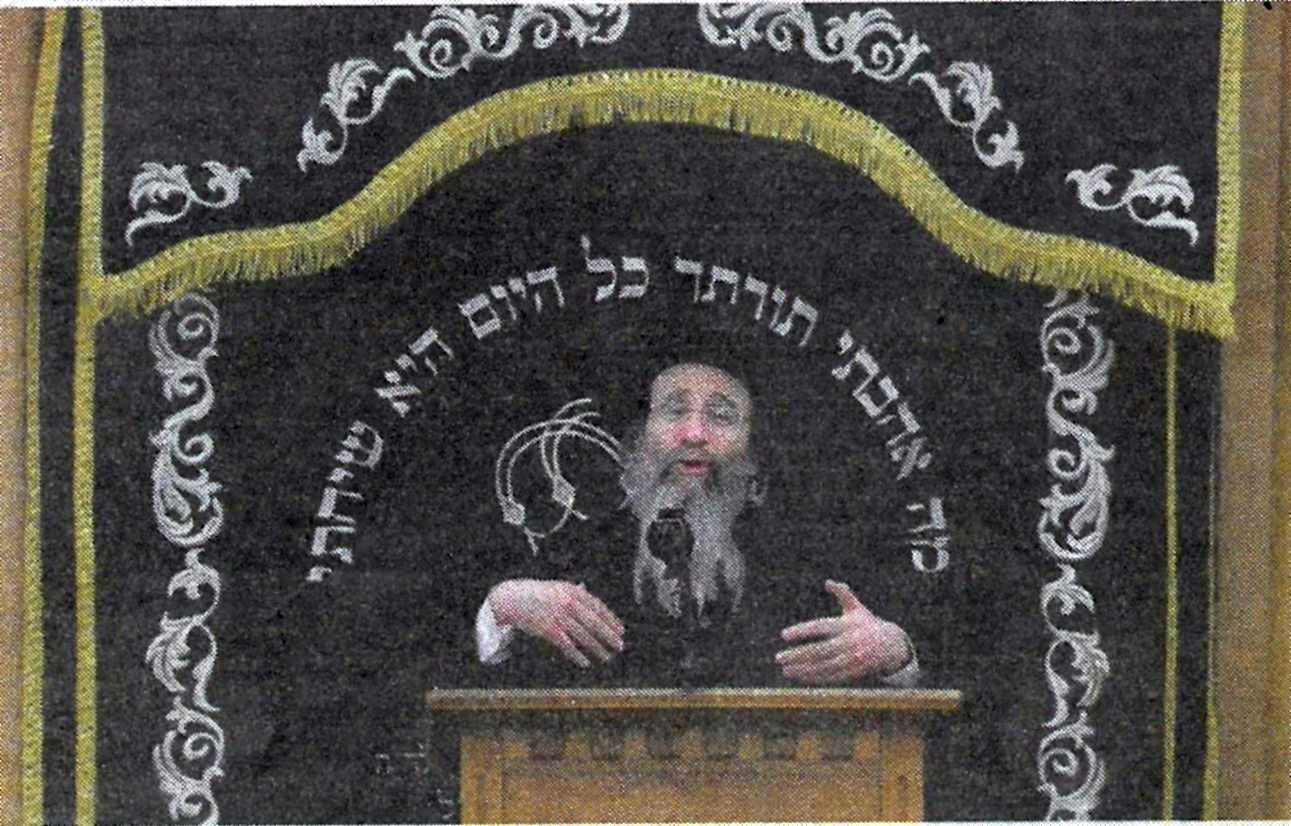HaRav Binyomin Finkel

Mir Weeps Over Four of its Sons
Mir lost four of its talmidim, all from chutz la'aretz who came to imbibe of the Torah and atmosphere of Mir Yeshiva and Yerushalayim. They went to Meron and did not return.
We asked the Mashgiach HaRav Binyomin Finkel for some perspective.
And this is what he said.
HaRav Avrohom Chaim Pincus zt"l, the father of HaRav Shimshon Pincus zt"l, was a great man who spent his time learning Torah. On that black night when his son HaRav Shimshon and his wife and daughter were tragically killed in an automobile accident, on the night of the early bedikas chometz, he spoke at the levaya: "I learn a sugya in the gemora. Sometimes I do not understand the sugya. So who is at fault: Me or the sugya? Certainly the sugya is as it should be, but I have a problem since I do not understand it properly. We do not always understand the sugya. But the problem is with us and not with the sugya."
*
What must we really do in order to atone for the pure blood of the forty-five sacrifices?
Mem-hei, mah, forty-five. Mah - what does Hashem ask of us?
HaRav Chaim already determined: "We are not privy to the reckoning of Heaven. This is His will. We must strengthen ourselves in Torah study and prayer."
HaRav Gershon Eidelstein also clarified, "Let us examine our ways and investigate. The entire generation needs repentance and the heart knows the bitterness of its soul. What is clear is that not only does it apply to the heart of Meron but also to our own hearts. What took place cannot continue!"
HaRav Yaakov Neiman (in Darchei Mussar) quotes a teaching of Chazal: "`Whoever sheds tears over an upright person — Hashem counts those tears and stores them away.' He says that he heard a commentary from HaRav Naftoli Trop, Rosh Yeshivas Radin, who compared this to a parable of a manufacturer who had two sons. One of them assisted him in the management of the business while the second was a Torah scholar who devoted his whole time to study, taking no part in the business.
"Suddenly, the older son died and all the workers grieved alongside their boss. Then the second son also died and the employees also shared their sorrow with their employer.
"When the latter thanked them for their condolences over the second son, they asked him why he hadn't expressed his feelings over the death of his first son. He said: I wasn't certain that you commiserated with me over the loss of my first son. I thought that perhaps you were sorry over the fact that he was no longer there to run the business and that you would suffer. But when you expressed sorrow over the loss of the scholar-son with whom you had no connection, I understood that your sorrow was genuine.
"The lesson is that if we weep over the death of a Torah leader, it does not prove that we feel the pain of the Shechina but primarily over the loss which applies to us. But when one mourns over the loss of an upright Jew who was not distinguished in any particular way, who did not impact upon our lives, it is a sign that we empathize with the pain of the Shechina."
At this time, we are all in shock over the terrible catastrophe, but do we also share the pain of the Shechina? Do we lend an ear to the thundering sound which reverberated in our world, designed to realign the crookedness in our hearts?
Or, perhaps, when the storm dies down, we will harden our hearts and stiffen our necks and continue to pursue the path of `happenstance', of seeking commentaries and resumes of the investigating committees and give the flood of the feelings to recede, without become better, improved, and not endangering ourselves again?
Let us search our ways and probe; let us return to Hashem.




